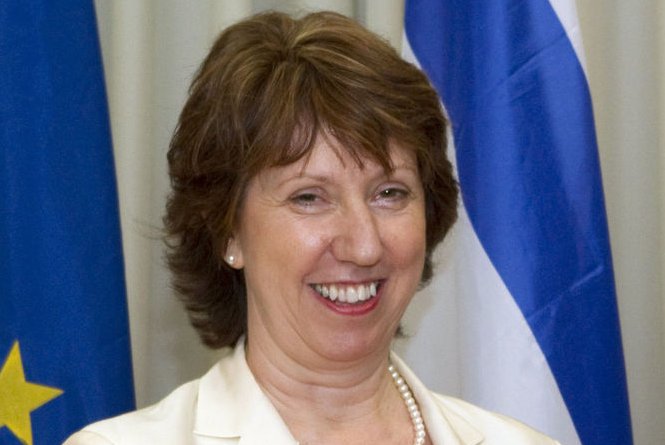European Union Foreign Policy Chief Catherine Ashton, pictured in 2011. (UPI/Jack Guez/Pool) |
License Photo
ATHENS, Greece, April 4 (UPI) -- Foreign ministers from European Union member states gathered in Athens Friday for an informal meeting known as the Gymnich.
Catherine Ashton, EU High Representative for Foreign Affairs and Security Policy and Vice President of the European External Action Service, delivered the opening remarks. The focus of the meeting, she said, will be "on our neighbourhood." The neighborhood is short-hand for an evaluation of the European Neighborhood Policy.
The European Neighborhood Policy is a joint initiative between EU members and neighboring non-member countries. Under the ENP, the partners work together "to achieve the closest possible political association and the greatest possible degree of economic integration. This goal builds on common interests and on values -- democracy, the rule of law, respect for human rights, and social cohesion."
The foreign ministers, Ashton said, will have the opportunity at the meeting to assess whether the neighborhood policy is a framework that should be continued or whether a new approach is needed.
Neighbors of concern include the politically and economically fragile Ukraine and "our huge neighbour," Russia.
With regard to Russia, Ashton outlined two objectives for the Gymnich.
"First of all the de-escalation: you know what that means in terms of troops on the ground. ... The description that somehow troops are moving back has not been verified by NATO, and it is really important that Russia shows that it is serious about the de-escalation by moving troops back and that's something that I hope we will see happening. But we'll be watching with great care what's happening there.
"Secondly, it also means an understanding that nations are entitled to make their own choices and that we will not recognize the annexation of Crimea. It also means recognizing that we need to think carefully about our future relationships with Russia and with our partners in the East."
The foreign ministers are also expected to discuss EU support for the UN-led Syrian peace talks.
Ashton's spokesperson tweeted a "family photo" of the foreign ministers at the start of the Gymnich.
[European Union]















